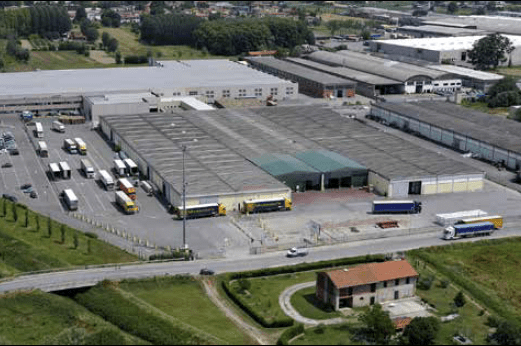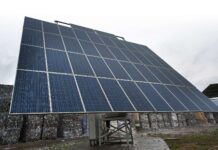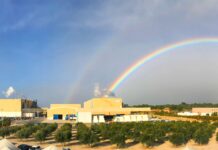After two years of substantial restructuring, the WEPA Group has never lost its faith and drive in the Italian tissue market. Italian managing director Bernhard Gross tells TWM why now more than ever the company is securing its foothold in Italy.

“We have had substantial restructuring programmes taking place over the past two years,” WEPA Lucca managing director Bernhard Gross tells TWM when we meet at the Capannori-based site in Lucca. “It was a necessary and natural process to align the installed capacity and human resources to the requirements of the market. We restructured in a healthy balance and that was our main goal. And I’m happy to say that this process is now complete.”
German-born Gross is just six months into the job after having successfully managed a turnaround of another Italian business during the last seven years. He is sincere about the restructuring processes that have taken place within WEPA Lucca – which have included the sale of two of its four Italian tissue mills – as well as the reasons behind the cuts: “We have now tailored our resources to also manage a flat market successfully,” he says. “And we divested PM capacity in order to achieve a healthy balance with our own converting requirements.”
The German-headquartered WEPA Group has a strong foothold across much of Europe (Poland, France, Germany, the UK and Spain) and finally two plants in Italy – one in Lucca and one in Cassino, which house a total of three PMs. In Cassino, a lot of investment has been made in terms of energy efficiencies, mostly with Toscotec, which Gross says has further increased the site’s competiveness.
The family business was founded in 1948 near Düsseldorf by Paul Krengel, an entrepreneur who saw an opportunity in the market after the second world war and the business is now number four in Europe.
In 2009, it acquired the Lucca based Kartogroup, which Gross describes as “a very important step” in the development of WEPA. Today, the group has 3,000 staff and a €1 billion turnover and an “excellent footprint of manufacturing sites all around Europe”.
In Italy, it is the supplier for the Italian market under the umbrella of the WEPA Group. What sets it apart from other Italian companies is that it is a dominant player in the private label sector, says Gross. “This area is seeing good growth across Italy and it holds a lot of opportunity for us. WEPA is an expert in private label outside of Italy and this means we can build on that in our local business.”
The company equally continues to focus and innovate on its branded products. It has three brands, Perla, Comprami and Scala and continues to develop its brands in the country. “Italy is famous for its brands,” he says.
“Despite the economic difficulties in Italy over the last few years our brand products have done well here.
“One in particular, Comprami, is a value offer product that hit the market at exactly the right time. It’s highly appreciated by consumers here and it has a lot of potential for developments.”

With the economic uncertainty, Gross says consumers are more conscious about their buying habits but adds they are not necessarily trading down, just that they’re spending what they can afford. “Tissue is a commodity,” Gross adds. “Innovation will help us in branded products to differentiate from the competition. In private label, cost leadership is key and therefore productivity in our factories is crucial.”
He is keen to emphasise that 2014 is a new start for WEPA Lucca. But he is cautious to say that growth is expected in the Italian tissue market. “It would go too far to say if we expect growth or not,” he says. “So it’s important the business is prepared either way, for small growth or for a saturated flat market.”
What he is determined about is the potential for Italy and the WEPA Group’s presence there. He says the Italian footprint of the two plants is strategically important for the business, which isn’t questioning the importance of the two sites.
“I don’t want to join in the negative comments about Italy and its economy,” he says.
“I believe in Italy. We are prepared for it and happy to be here.” He adds the company will do whatever it can to support positive demand and that he is optimistic that Italy will come out of the crisis.
“We don’t share the cynicism. We represent a German family investing here and that’s commitment for the future. We have done our homework and we feel fit for the future.”

































